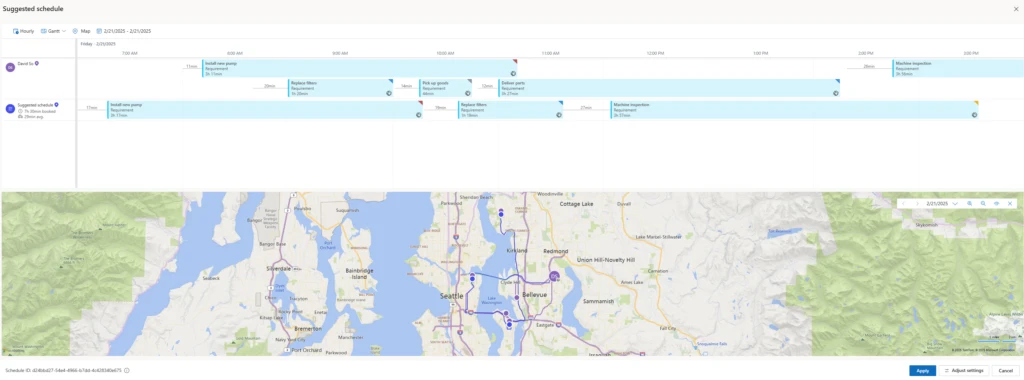
Sales Order Agent in Microsoft Dynamics 365 Business Central: Now in public preview
This article is contributed. See the original author and article here.
We’re pleased to share that the previously announced Sales Order Agent for Microsoft Dynamics 365 Business Central is now available for customers in paid public preview.
The first prebuilt agent in Business Central represents an important milestone in the changing landscape of business operations. As Microsoft Copilot begins to replace app-centric user interfaces, agents will automate process flows allowing businesses to save time, minimize repetitive tasks, and do more with fewer resources.
Let’s dig into what Sales Order Agent does.
What is Sales Order Agent in Dynamics 365 Business Central?
The Sales Order Agent is an autonomous tool for addressing, clarifying, and fulfilling customer requests received via email.
Here’s what the Sales Order Agent does in very basic terms:
- Customer request: A customer sends an email requesting a sales quote.
- Agent action: The agent processes the email, reviews the request, and finds the customer and requested items.
- Quote creation: It verifies item availability, creates the sales quote, and prepares an email response.
- User review: The agent engages with an end user to approve the quote before sending it to the customer.
- Customer confirmation: The customer reviews the quote and requests an order.
- Order conversion: The agent converts the quote to an order and sends a confirmation email to the customer.
Want to see what this looks like in action? Watch this video:
Pre-AI, this would be a reasonably straightforward workflow, but adding each sales line individually can be a laborious and error-prone task, and the workflow could bread down as soon as there were any bumps in the road, for example: What if a customer’s message is vaguely-worded? What if customers don’t approve the quotes? What if the customer isn’t recognized in the system?
The good news is that with the power of Copilot, Sales Order Agent has been meticulously engineered to proactively address these issues. Read more about scenarios and limitations.
Passing the power to the user
Sales Order Agent is engineered to take away the manual processes of simple order-taking from the end user, allowing them to spend more time on more strategic elements of managing a growing business, offering a faster turnaround for customers, and quicker realization of value. But the end user ultimately has control over Sales Order Agent operations:
- Users are, by default, notified to approve any outbound correspondence from the agent for accuracy and to ensure that appropriate actions have been taken.
- Users can at any time see a full picture of the task’s context and history (“timeline” view), including the key steps displayed in the Copilot pane.
- Users will see a detailed review of each entity the agent created (such as sales quotes or sales orders), review all changes and suggestions the agent makes for a specific task, and adjust appropriately.
- Users have the power to discard the steps performed by the agent, adjust the quote or order as needed, and ask the agent to proceed with the flow.
All these actions (and more) provide users with the ultimate oversight, and over time, will improve the Sales Order Agent’s accuracy and usability.
Learn more about how this works in practice.
The business value of autonomous sales orders
So, in a world where you’ve taken away the mundane tasks of cross-referencing customer discounts and terms, double and triple-checking inventory, and fumbling through procurement systems to generate purchase orders, there are naturally repercussions throughout your business.
Outside of the binary gains that have been mentioned already, let’s talk about what this next step in autonomous ERP processes can help enable:
- Scale your business without the traditional friction that accompanies growth: Traditionally, scaling up a business was a resource balancing act: How do we ensure that we’re able to meet the product, relationship, and personnel needs to increase operations? While the Sales Order Agent certainly doesn’t erase the full scope of challenges inherent with a growing business, it can help eliminate some of the friction by automating the systems that work within your current install base.
- Sales spends more time doing what sales does best: Rather than getting sidelined with lengthy order evaluations and wasting time on guaranteed revenue, sales reps can focus on building client relationships, generating net-new business, and evaluating ways to expand existing customer relationships with the knowledge that transactional interactions are managed automatically, with their oversight, when needed.
- Enjoy greater data accuracy across all systems of record: Business Central has always allowed finance, supply chain, and CRM systems to work in harmony with one another, and by further eliminating the prospect of human error, this is extended even further. This positive feedback loop will be further enhanced by prebuilt agents in the future, along with the custom agents that partners and end users build to help minimize clicks to complete and realize the goal of end-to-end ERP automation.

Agents: The next frontier of AI
Our Dynamics 365 Business Central team is pleased and proud to bring this first agentic experience to market, but this is—of course—only the first. With our Payables agent launching later this year, along with the ability for partners and customers to design their own agentic workflows into Business Central, now is the time to begin this journey toward end-to-end business process automation.
If you’re a current Business Central customer, be sure to talk to your partner about how you can easily activate Sales Order Agent and accelerate your time to value in every inbound sales interaction today.
New to Business Central? See how partnering with Microsoft can accelerate your growth and unlock a new level of operational oversight and efficiency.
The post Sales Order Agent in Microsoft Dynamics 365 Business Central: Now in public preview appeared first on Microsoft Dynamics 365 Blog.
Brought to you by Dr. Ware, Microsoft Office 365 Silver Partner, Charleston SC.




Recent Comments